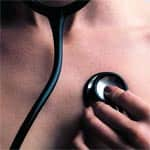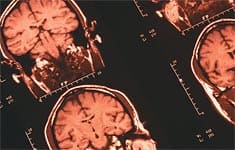Why Tea?
Back when Europe was stone huts and the Mayans were playing soccer, the Chinese were drinking tea. Tea goes back at least 5,000 years as medicine and more than 1,000 years as a simple beverage. Made from the leaves of a bush related to flowering camellia, tea has had a role in major features such as the American Revolution and Zen Buddhism. The Japanese regard tea so highly that they’ve created a ceremony for it, and a separate little tea house in which to serve it. The tea ceremony is remarkable in that it dramatizes tea’s physical effects on the human body. Tea causes changes in body chemistry that rejuvenate, relax, enhance the ability to think, and change mood.1-6 The biochemical changes provoked by tea are scientifically supported, and they’re not due to caffeine.6 Among the latest discoveries about tea is that it can prevent depression and lower blood pressure.7,8 Both green and black teas have beneficial health effects, the main difference being that black tea is oxidized. That would seem to destroy tea’s bioactivity, but it does not. Black tea continues to prove itself in scientific studies. Researchers with the US Department of Agriculture, for example, recently reported that five cups of black tea a day can lower potentially harmful low-density lipoprotein (LDL) and total cholesterol in people with mildly elevated cholesterol.9 Black tea has benefits, but green tea has undergone more investigation, especially in Japan, where it’s the most popular beverage. Many new reports have come out about green tea’s amino acid, theanine. The only other known source of this unique amino acid is a mushroom.10 Discovered in 1949, yet just now undergoing substantial research, theanine occupies a place on the shelf quite different from that of other dietary supplements. It has to do with the tea ceremony. Balancing Sleep/WakeMillions of Americans will have trouble sleeping tonight. They won’t be able to fall asleep, won’t be able to stay asleep, or won’t feel like they slept. The primary reason is stress, followed by illness, inactivity, medications, and bad sleep environment. The net effect is a lot of grouchy, depressed, and accident-prone people.11 Most won’t see a doctor, even though insomnia can lead to depression, traffic accidents, and a pink slip. Instead, most people will reach for America’s favorite drug: caffeine.
Every day, millions of people take caffeine in one form or another. It’s not only in coffee, it’s in fruity sodas, over-the-counter drugs, and diet elixirs. “Energy drinks” and espresso are popular caffeine fixes with megadoses of caffeine. Caffeine keeps Americans alert during the day, but it has a price. It can stay in the body for about 10 hours. That’s if you have a fully functioning liver. If you drink alcohol or take cimetidine (Tagamet®) and other drugs, it will stick around even longer.12,13 That means the cappuccino you had at three in the afternoon is still around at midnight. To relax at night, Americans don’t have many choices except prescription sleeping pills. But these drugs don’t work for everyone, and have undesirable side effects. Better solutions are needed. Tea Ceremony in a CapsuleRelaxation, rejuvenation, focus. The tea ceremony energizes without draining, calms without putting to sleep, and motivates without causing a jagged edge. Although tea can have as much or more caffeine than some coffees, it doesn’t have the same “speedy” effect.14,15 The reason is its secret ingredient, L-theanine. Research shows that L-theanine neutralizes the speedy, jagged, bad effects of caffeine without reducing its mind-energizing, fat-burning features.16,17 L-theanine’s effect on the brain can be visualized on an EEG. Brain waves are actually smoothed out—but not flattened out—by supplemental L-theanine.16 The body is relaxed, the mind is calmed, but no drowsiness occurs.5 This is exactly the type of relaxation prescribed by sleep therapists. The person seeking help will be asked to listen to music or engage in a similarly relaxing activity immediately before retiring. Studies show that pre-sleep relaxation is very effective against insomnia, even in tough cases.18-20 Falling asleep is one thing; staying asleep and getting quality sleep is another. Researchers in Japan gave volunteers 200 mg of L-theanine daily and recorded their sleep patterns on devices worn around their wrists. The L-theanine didn’t cause the subjects to sleep longer, but it did cause them to sleep better. It was documented that sleep quality, recovery from exhaustion, and refreshed feelings were all enhanced by L-theanine. Those taking L-theanine felt like they slept longer than they actually did.21 This is good news for people who don’t get enough sleep, or those who want to sleep less and do more. One of the other effects of the tea ceremony is that it leaves people in a better mood. Knowing that L-theanine can cross the blood-brain barrier and positively affect brain chemistry, scientists investigated its mood-modulating effects. The results of those studies have led to L-theanine being patented as a mood enhancer.22How it works is not completely understood, but one thing researchers have discovered is that L-theanine changes levels of amino acids affecting serotonin and other neurotransmitters in the brain.5
Balancing Brain ChemistryMemory impairment is frequently associated with old age or Alzheimer’s disease, but there are other causes. Stress and depression, for example, cause memory loss. Although usually thought of as mere psychological states, stress and depression cause physical changes in body chemistry. The brain is notably affected. Stress hormones known as glucocorticoids are activated by both stress and depression. In turn, they cause imbalances in brain chemistry that interfere with mood and memory.23-26The effect is biochemical. Glucocorticoids disrupt serotonin, dopamine, norepinephrine, and other brain chemicals.27,28 These “neurotransmitters” are the target of prescription antidepressants such as Prozac® and Wellbutrin®. And it has been shown that glucocorticoids can interfere with the ability of Prozac® and other drugs to work.29 Worse still, glucocorticoids can cause the brain to shrink.30,31 Counteracting glucocorticoids is extremely important. Drugs that block glucocorticoids have been proposed as a treatment for depression, and strangely enough, people have been treated successfully with ketoconazole (Nizoral®), an antifungal drug with the side effect of suppressing glucocorticoids.32,33 Theanine also suppresses glucocorticoids, and it is one of the few dietary supplements that crosses the blood-brain barrier. Theanine’s connection to the suppression of glucocorticoids is through glutamate. Researchers have discovered that this natural component of brain chemistry, which is not traditionally associated with depression, in fact plays a major role.34 In people who are depressed, glutamate levels are out of balance.35Preliminary studies show that blocking certain signals in the brain activated by glutamate may be as effective as prescription antidepressants.36,37 L-theanine may act as a glutamate antagonist.38 Researchers believe that glutamate receptor antagonists may offset the harmful effects of high glucocorticoid levels and offer neuroprotective effects against both acute and chronic neurodegenerative diseases.39 Glutamate-activated signals not only affect mood, they affect memory and learning.40 Memory and learning are similar biochemical processes in the brain. If an animal can’t remember, it can’t learn. Stroke, Alzheimer’s disease, and alcohol all cause memory loss involving disruptions in glutamate-related signals that inhibit the storage and retrieval of memories.41-44 If theanine is present in the body at the time stroke occurs, the damaged area will be significantly reduced.45This is supported by a Chinese study of 14,000 people, which found that drinking tea slashes the risk of stroke by 40%.46 Maintaining healthy levels of L-theanine and other tea-related compounds in the body may thus help prevent memory loss and stroke-induced damage to brain tissue. Balancing the Liver: AlcoholAnother part of the body that responds positively to theanine is the liver. Research from Japan shows that theanine is a powerful antidote to the effects of alcohol. If theanine is given to mice before or after they drink alcohol, it significantly lowers blood levels of alcohol.47 It works by modulating alcohol chemistry. Alcohol is converted to a toxic chemical known as acetaldehyde, which is similar to formaldehyde and more toxic than alcohol itself. Theanine accelerates the break- down of acetaldehyde and blocks toxic radicals.47The remarkable powers of theanine to intercept free radicals was demonstrated in the same study. It not only blocked radicals caused by alcohol, it suppressed levels to below normal for five hours. One reason theanine is able to reverse damage caused by alcohol is that it restores the liver’s all-purpose antioxidant and detoxifier known as glutathione. Drinking alcohol causes significant suppression of this critical factor. If the suppression is infrequent, the liver bounces back; if suppression is chronic, however, the liver can’t overcome the stress. It breaks down and the effects are felt throughout the body. Theanine helps counteract the alcohol-induced loss of glutathione.47 Glutathione is not only something people who drink alcohol have to worry about, it’s something that oncologists have to worry about. Depletion of glutathione in vital organs like the heart is a major cause of chemotherapy toxicity. Because of it, some drugs that could otherwise be useful in treating certain types of cancers can’t be used. Researchers looking into the possibility of adding theanine to chemotherapy have found that it counteracts drug-induced losses of glutathione in vital organs like the heart, but not in tumors.48 In fact, it blocks tumors from getting glutathione, thus enabling some types of chemotherapeutic drugs to work better.49 By enhancing glutathione where it’s beneficial and reducing it where it’s not, theanine again shows its propensity to restore balance. From Life Extension Magazine January 2006 |
 Vitamin Agent The Health & Naturalistic Source
Vitamin Agent The Health & Naturalistic Source








